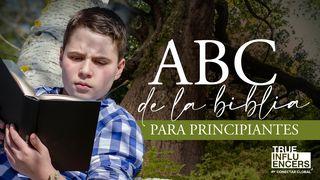Exodus: Free My PeopleMuestra

Your Story
By Lisa Supp
“So Moses said this to the sons of Israel, but they did not listen to Moses on account of their despondency and cruel bondage.Now the Lord spoke to Moses, saying, ‘Go, tell Pharaoh king of Egypt to let the sons of Israel go out of his land.’ But Moses spoke before the Lord, saying, “Behold, the sons of Israel have not listened to me; how then will Pharaoh listen to me, as I am unskilled in speech?’”—Exodus 6:9–12 (NASB)
King Solomon wrote, “Hope deferred makes the heart sick” (Proverbs 13:12 NASB).
Undoubtedly, Moses and the Hebrew people were heartsick.
Not that the people weren’t accustomed to sorrow or despair—their captivity had been a burden too difficult to bear. But to be told they would be set free only to have Pharaoh add to their burden strained them, bruised them, and caused them to turn to Pharaoh for mercy rather than to their God (Exodus 5:15). Heartache shifted to deep despair.
As for Moses, despite his protest and self-disqualification, the Lord was adamant in calling him as His agent of deliverance. The assurance He provided was remarkable—I am the Lord, I will deliver, I will redeem, I will be your God (Exodus 6:1–8). Yet, Moses continued to balk and distance himself from greatness.
But what Moses and the people couldn’t fathom, we do; their progress was chronicled, and we know the end of the story. We see how it was fraught with challenges and setbacks, unbelief and disobedience. We know the people worshipped God one minute, then questioned His sovereignty the next.
That rings true even today. Because, as Solomon once wrote, “There is nothing new under the sun” (Ecclesiastes 1:9 NASB). Despite our ideas of God’s plan for our lives and the promises we read, the path we feel led to sometimes becomes unclear. We begin to feel doubt and distrust. We battle with hopelessness and heartache. Just as the Hebrews did in their impatient despair, we might look to resources around us rather than to God. After all, we can’t peer to the back of our story to see the end. But God tells us the same thing He told Moses—this is His story; to keep going. Despite what we feel, we must choose to trust.
So, how will our story progress? How will it end? No one knows. Only God in His divine foreknowledge can determine the beginning from the end (Isaiah 46:10). But we do know that whatever God has called us to, He will fulfill that calling (Philippians 1:6; 1 Thessalonians 5:24). That is His promise to us in this age. This is possible because the Lord, in all His faithfulness, sent Jesus—the fulfillment of all His promises (2 Corinthians 1:20). For us, Jesus has not been deferred, He is our hope.
Proverbs 13:12 (NASB) concludes with, “But desire fulfilled is a tree of life.” This tree of life represents the wisdom we receive when we realize our story is penned by the One who has all authority to write it. We get in the story for the hope of His glory, and that is greatness in and of itself.
Pause: It’s interesting to read the account of Moses at this stage of Exodus and then read Psalm 90, which is believed to be written by Moses. Take some time to read it and see the wisdom and insights he gained.
Practice: How do your hopes define your life? Are they more earthly-driven or divinely motivated? Sometimes it helps to take account of these in our times of prayer. Try that today.
Pray: Father, should my hope and trust ever be diminished by circumstances I do not understand, I pray You will avert my gaze to You and only You. For it is in Jesus I place all hope, and on Him my eyes rest. Bring Your promises to mind; help me realign and refocus. May the end of my story be punctuated by You. Amen.
Escritura
Acerca de este Plan

In part two of this seven-part study through the Book of Exodus, we'll explore Exodus 6–13.
More
Planes relacionados
Marcas De Un Discípulo

La Gracia. 7 Claves Para Vivir en Plenitud.

ABC De La Oración ... Para Principiantes.

Testigos Del Milagro: La Primera Navidad

¡Levántate! 7 Claves Para Levantarte Y Seguir.

Confiando en Los Propósitos De Dios

ABC De La Biblia Para Principiantes

1 Tesalonicenses: Modelos a imitar
